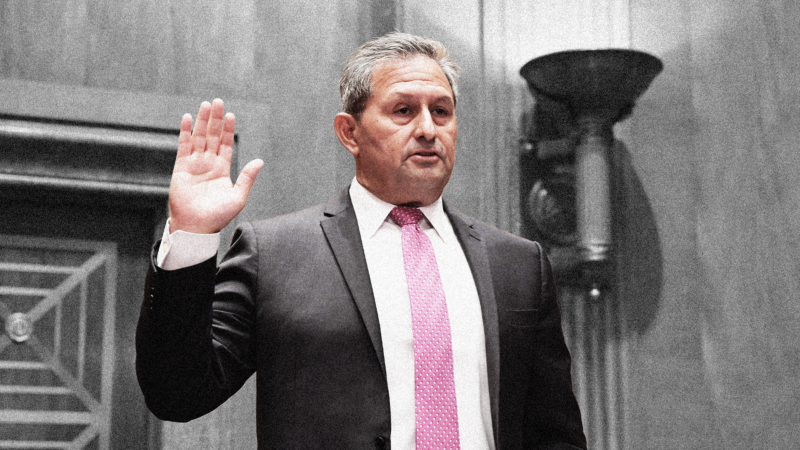Federal Government Under Fire Over Conditions at Atlanta Federal Prison
Senators allege Bureau of Prisons officials turned a blind eye to rapidly deteriorating conditions at the U.S. Penitentiary in Atlanta.

Testifying before lawmakers on Tuesday, outgoing Bureau of Prisons (BOP) Director Michael Carvajal came under fire from Democratic and Republican Senators due to conditions at the U.S. Penitentiary in Atlanta.
The hearing was held to present findings from a monthslong bipartisan investigation into conditions at one of the nation's most troubled federal prisons. The report, expected for release later this year, describes an agency and a penitentiary mired in dysfunction.
"Gross misconduct persisted at this facility for at least nine years," said Sen. Jon Ossoff (D–Ga.), who chairs the Permanent Subcommittee on Investigations. "Much of the damning information revealing misconduct, abuse, and corruption was known to BOP and accessible to BOP leadership during that period."
"Inept leadership at the prison ignored security failures and allowed corrupt staff to avoid accountability for misconduct," said Sen. Ron Johnson (R–Wis.). "USPA and BOP staff even used a specific phrase to describe this pervasive culture of corruption at the prison. They called it 'the Atlanta Way.'"
The penitentiary has long been a headache for federal officials. A 1980 Senate investigation found that the prison "[had] become the setting for violent inmate murders, extensive narcotics trafficking, and various other criminal activities" and recommended the Justice Department close the prison by 1984. Those plans were reversed amid a major crackdown on crime and subsequent increase in the federal prison population, with federal officials promising to update the facility instead.
By 2012, facilities were once again in disrepair, with officials turning a blind eye to worsening security issues at the facility. In 2017, the Atlanta Journal-Constitution reported that inmates were not only easily smuggling contraband items, including alcohol and drugs, onto prison grounds but also escaping minimum-security detention sites to visit homes, restaurants, and hotels.
Meanwhile, senators entered a 2021 letter from the chief federal district judge in northern Georgia into the Senate record detailing horrifying conditions, including emaciation, lack of medical care, and a rampant pest problem. One internal memo senators cited went so far as to declare that correctional staff "lacked regard for human life." Suicide reconstructions, the investigations conducted by BOP into how inmate suicides occurred and the factors that led to them, regularly found that victims were high at the time of their deaths and that patrols were insufficient to stop suicide attempts. Internal reviews senators entered into the record also found incredibly deficient security measures inside: broken gates, staffers sabotaging drug detection technology, a lack of consistent documentation around incidents, and unqualified staff assigned to armed patrol posts.
Carvajal, who became the head of the Bureau of Prisons in February 2020 and left the role this morning, defended the agency's work in improving conditions at the Atlanta penitentiary. "We reassigned staff, transferred inmates, lowered the security level, and began updating infrastructure at the facility," he told lawmakers in his opening remarks on July 26.
Carvajal says BOP's extensive bureaucracy kept information from reaching his desk. "It is a very large and complex organization," he says, adding that there was "no possible way" for him to know of all happenings at individual prison facilities. He says the agency took immediate action once problems at the penitentiary were made known to him in the summer of 2021, following an extensive investigation by the Associated Press.
Senators pushed back on these claims, citing internal reports and communications that Carvajal and other top BOP officials received as early as 2018. Ossoff pointed to a litany of suicide reconstructions, all of which were forwarded to Carvajal. Ossoff also pressed Carvajal on a security assessment from BOP's Central Office that found that the Atlanta facility posed a security threat to the entire Southeastern region of the United States. Carvajal denied having seen that report or receiving those suicide reconstructions.
"What is going on in the Department of Justice that they refuse to be transparent until the Senate has to issue a subpoena?" Johnson angrily fired back at one point in the hearing. "It's that arrogance, lack of transparency, and dishonesty that has Americans losing confidence in these institutions that they frankly need to have confidence in."


Show Comments (7)